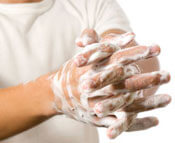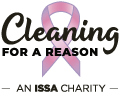Articles
What You Need to Know About the FDA Rule on Antibacterial Soap
Categories: Cleaning for Health & Safety, Government Affairs
By Bill Balek | February 4, 2014 << Back to Articles
After more than 20 years in the making, the U.S. Food and Drug Administration (FDA) sought to bring closure on its rulemaking regarding antibacterial hand and body soaps by issuing a proposed rule in the December 17, 2013, edition of the Federal Register, the official journal of the federal government of the United States.
The FDA’s proposed rule would require manufacturers of antibacterial hand and/or body washes to demonstrate that their products are safe for long-term daily use and are more effective than plain soap and water in preventing illness and the spread of certain infections. Under the proposal, if companies do not demonstrate such safety and effectiveness, these products would need to be reformulated or relabeled to remain on the market.
The scope of the proposed rule is limited to antibacterial hand and/or body washes that are intended to be used with water. Hand sanitizers not intended to be rinsed off with water, antibacterial wipes, and antibacterial products used in health care settings will be the subject of future FDA rulemakings.
Background
The recent proposal amends a 1994 proposed rule (aka “Tentative Final Monograph”), and is in large part a reaction to a lawsuit filed by the National Resource Defense Council (NRDC) regarding the active ingredient triclosan.
While the NRDC lawsuit focused on triclosan, the FDA’s proposal is not limited to that active ingredient. In fact, FDA is declaring that none of the active ingredients referenced in the 1994 Tentative Final Monograph has the safety and effective data needed to support a “generally recognized as safe and effective” (GRAS/GRAE) classification for antibacterial hand and/or body washes, a legal prerequisite to the lawful manufacture, marketing, and sale of these products.
Overview: Safety & Effectiveness
According to the FDA, the widespread use of antibacterial products, the accumulated scientific information, and concerns raised by health care and consumer groups have prompted the agency to reevaluate what data are needed to classify the active ingredients in consumer antibacterial products as GRAS/GRAE.
After evaluating existing literature and other data and information, the FDA has concluded that none of the antiseptic wash active ingredients classified in the 1994 Tentative Final Monograph (including providone-iodine) has the safety and effectiveness data needed to support a classification of GRAS/GRAE for antiseptic hand or body washes.
In regard to effectiveness, the FDA has concluded that the record does not contain sufficient data to show that there is any additional benefit from the use of antibacterial hand or body washes compared to nonbacterial soap and water. As a consequence, the FDA is proposing that data from clinical outcome studies―demonstrating a reduction in infections from the use of antibacterial washes― are necessary to support a GRAE determination for antiseptic wash active ingredients.
In regard to safety, the FDA has reviewed new data and concluded that the “widespread and systemic exposure” to the active ingredients in antibacterial washes raises concerns about human absorption and long term exposure related to potential hormonal effects. In addition, according to the FDA, new safety research suggests that widespread use of antibacterial washes can have an impact on the development of bacterial resistance. Therefore, the FDA is proposing that the additional data be provided by manufacturers to demonstrate safety for all antibacterial wash active ingredients.
According to the proposed rule, the FDA is proposing these data requirements for all antibacterial hand or body wash active ingredients referenced in the 1994 Tentative Final Monograph including triclosan, triclocarban, and providone-iodine. The proposed rule also sets forth specific data requirements for each particular active ingredient.
At this time, the proposed rule does not require any action at all regarding antibacterial hand or body washes. However, if the proposed rule is finalized in its present form, either companies will have to provide the data discussed above to support an antibacterial claim, or if not, they will have to reformulate (remove antibacterial active ingredients) or relabel (remove the antibacterial claim from the product’s labeling) these products to continue the lawful manufacture, marketing, and sale of these products.
Additional Information
Contact ISSA Director of Legislative Affairs Bill Balek for additional information about this ruling and other regulatory topics of interest to the cleaning industry.
About the Author.
ISSA Director of Legislative Affairs Bill Balek has more than 25 years of experience working with various legislative and regulatory organizations that create rules that have a direct impact on the cleaning products industry, including antimicrobial pesticide registration, hazardous material transportation, safety and health regulations, and general environmental laws.





